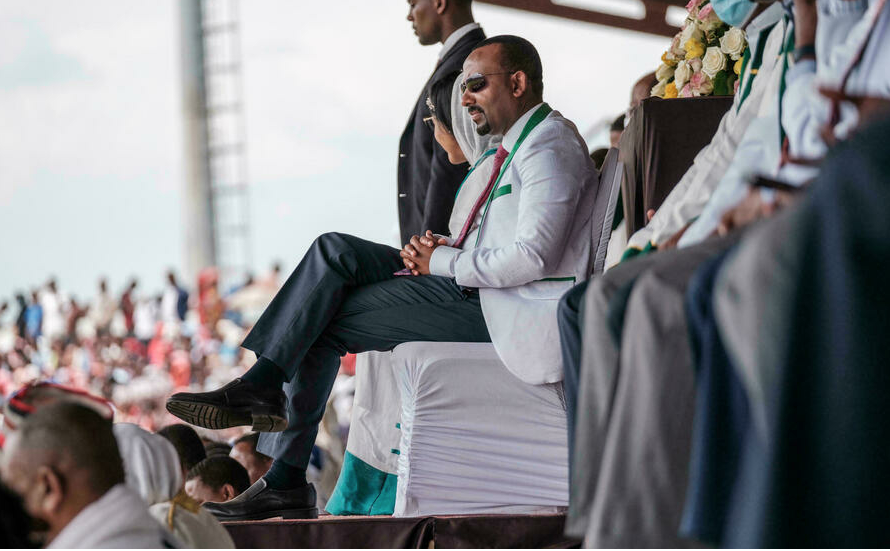Ethiopia’s Abiy to be sworn in for new term

Ethiopian Prime Minister Abiy Ahmed is due to be sworn in for a new five-year term Monday, but the milestone risks being undermined by growing alarm over the war in the north.
Abiy’s Prosperity Party scored a landslide win in June elections that federal officials touted as the high-water mark of democratic reforms he initiated upon taking office in 2018.
Yet by the time voters cast their ballots, tens of thousands had been killed in the conflict in the northern Tigray region and hundreds of thousands faced famine-like conditions, according to the UN, muddying the 2019 Nobel Peace Prize winner’s once-glowing reputation.
Since then, fighting has spread to neighbouring Afar and Amhara regions while Tigray has fallen under what the UN describes as a de facto humanitarian blockade, spurring fears of the mass starvation that turned Ethiopia into a byword for famine in the 1980s.
It is unclear whether Abiy’s swearing-in will alter the course of the war pitting government forces against the Tigray People’s Liberation Front (TPLF) rebel group, which dominated national politics before Abiy took power.
Abiy’s office, which blames the rebels for starting the war last November with attacks on federal army camps, has said certain conciliatory measures like declassifying the TPLF as a terrorist group can only happen after a new government is formed.
“The position has been that any change in approach to the conflict with the forces from Tigray can only occur after the formation of a new government,” said William Davison, senior Ethiopia analyst for the International Crisis Group.
International partners like the US, which has threatened to impose targeted sanctions related to the conflict, “will be looking at this closely to see if there is any shift in position”, Davison told AFP.







